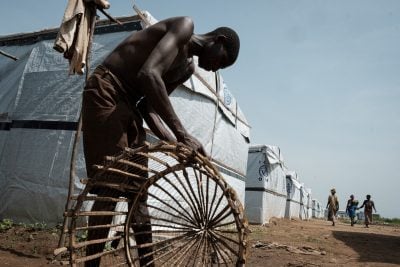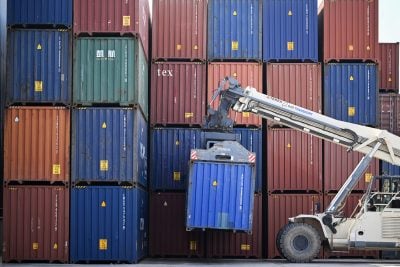What do PG Tips, Lipton, and Sainsbury’s Red Label have in common? They are all popular tea brands found in most UK supermarkets. But what the average British consumer doesn’t know is that some of this tea was harvested on farms in Kenya where women workers are experiencing sexual abuse by their supervisors, according to a report televised by the BBC on 20 February.
The documentary contained disturbing footage made by an undercover reporter posing as a plantation worker. In one scene an independent recruiter for a farm owned by James Finlay & Co is shown pinning her against a window and asking her to undress during a job interview.
In another, a manager on a farm then owned by Unilever and now belonging to Lipton Teas and Infusions asks her for sexual favours in return for being assigned lighter work (he denies the allegations against him).
Over 70 female workers on farms owned by Unilever and James Findlay spoke to BBC journalist Tom Odula, with many saying they had no choice but to accept the sexual demands of their superiors because of the fear of losing their jobs.
Kenyan officials and British multinationals quickly reacted to the allegations. A Kenyan parliamentary committee is investigating the allegations , and the governor of Kericho county in Western Kenya – where the plantations are located – has offered free private counselling services to victims. James Findlay and Lipton Teas have announced suspensions and internal investigations.
But finding who is at fault and firing them won’t resolve what is a systemic problem in many workplaces in Africa, large numbers of which are owned by foreign companies.
Last April, the international trade union IndustriALL organized a workshop on sexual harassment in the mining sector. Women from South Africa, Rwanda, and Zimbabwe shared their traumatic experiences working in gold and open-pit coal mines.
The prevalence of sexual harassment goes hand in hand with the scarcity of work for women in many markets in Africa. A 2015 study of East Africa’s agribusiness sector by British researchers found that “the most common targets of harassment were individuals — especially women — in insecure and low-paid positions,” as they were at greater risk of losing their jobs.
The lack of opportunities for an ever-growing population overloads the labour market, putting mostly women at risk, as men tend to occupy managerial positions.
Apart from strengthening labour unions, which would give women the right tools to raise their voices, part of the solution lies in exposing these behaviours, as the BBC did.
A sad – but realistic – way to think about it is that multinationals will start caring when their profits are affected by bad reputation.
“Concerns about profitability, reputation, and publicity can provide a ‘handle’ that may mean it is possible for international support groups as well as local labour organisations to pressure to improve working conditions,” the study says.
The question is: how far do the shares of a company like Unilever need to fall to improve women’s rights in Kenya?
Want to continue reading? Subscribe today.
You've read all your free articles for this month! Subscribe now to enjoy full access to our content.
Digital Monthly
£8.00 / month
Receive full unlimited access to our articles, opinions, podcasts and more.
Digital Yearly
£70.00 / year
Our best value offer - save £26 and gain access to all of our digital content for an entire year!

 Sign in with Google
Sign in with Google 



